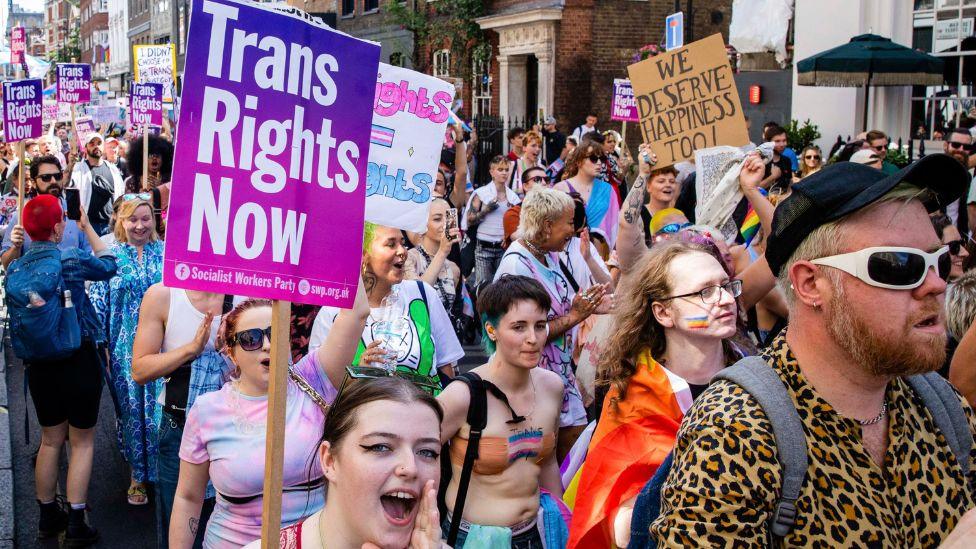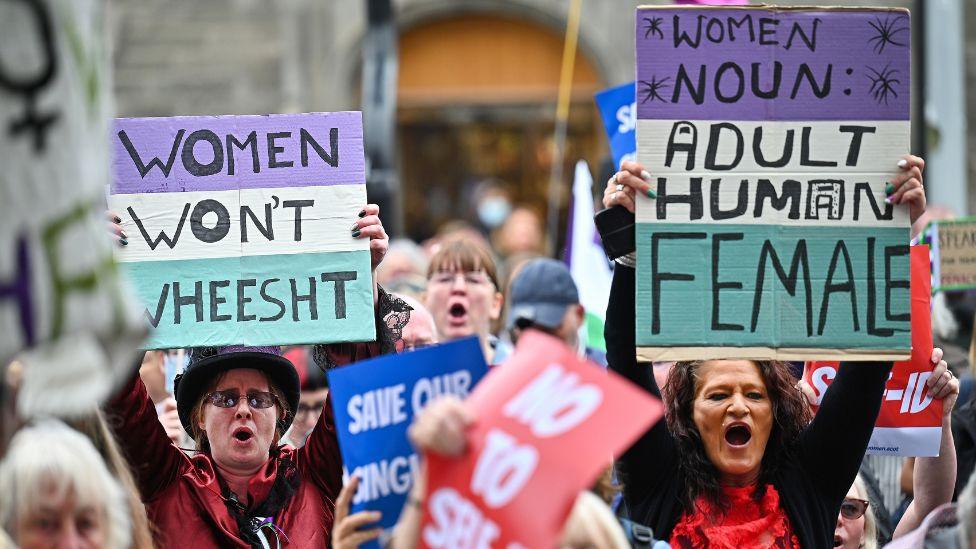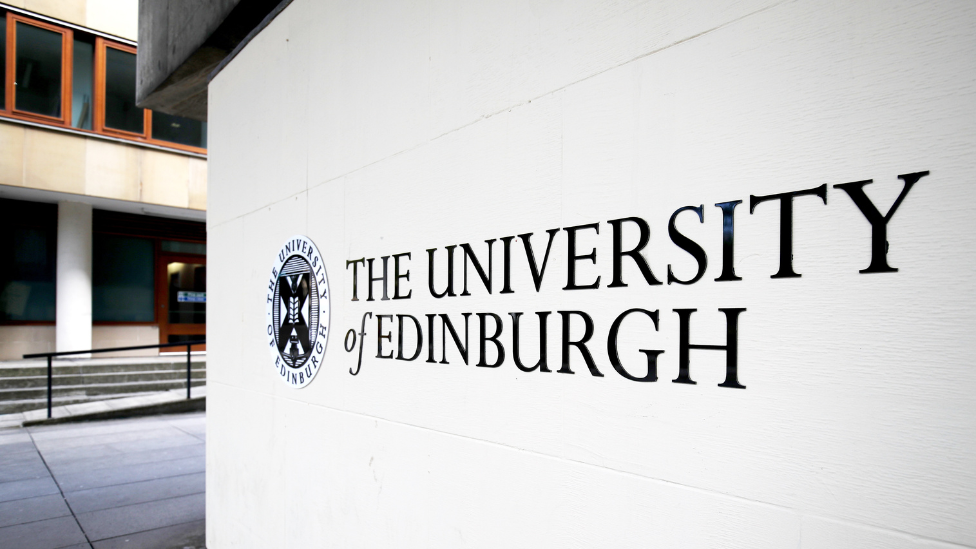UN chief backs Scottish government's gender recognition reforms
- Published

New reforms will make it easier for people to apply for a gender recognition certificate
A top UN official has backed the Scottish government's plan to reform gender recognition laws.
Ministers want to make it easier for trans people to change their gender.
The UN high commissioner for human rights said the Scottish bill as a "significant step forward".
Last month, a UN special rapporteur on violence against women and girls, warned the Scottish bill could endanger women.
Reem Alsalem said it "would potentially open the door for violent males who identify as men to abuse the process of acquiring a gender certificate and the rights that are associated with it".
This was disputed by a separate independent UN expert on gender identity, who said the legislation would bring Scotland in line with international human right standards.
Under the terms of the proposed new laws, people will no longer need a diagnosis of gender dysphoria to apply for a gender recognition certificate.
The Gender Recognition Reform (Scotland) Bill, which is expected to pass next week, will also reduce the time required for an applicant to live in their acquired gender.
The Scottish government argues the current process to change a person's legal gender is too difficult and invasive.
It said there was "no evidence" women and girls would be harmed by the bill.
However critics, including Harry Potter author JK Rowling, have voiced concern that it could undermine hard-fought for women's rights.
UN intervention
In a letter published on Friday, Victor Madrigal-Borloz, the UN's independent expert on protection against violence and discrimination based on sexual orientation and gender identity, argued the evidence from other countries where self-identification is standard does not support fears about abuse of the system by predatory males.
Liz Throssell, spokesperson for the UN high commissioner for human rights, backed the view of Mr Madrigal-Borloz.
She said: "The key point for the UN Human Rights Office is that everyone - and that includes trans women - should have access to legal recognition of their gender identity based on self-identification, through a simple administrative procedure without requirements such as medical certification, diagnosis, treatment or surgery."

Campaigners have raised concerns about the gender recognition reforms
The UN official said the Scottish legislation would be a "significant step forward" in ensuring Scotland met international recognised standards on human rights.
She added: "We have not seen any evidence to back the claim that allowing legal recognition of gender identity based on self-identification hinders efforts to combat violence against women.
"Around the world, including in the UK, there is clear data highlighting disproportionate rates of violence, harassment and hate crimes against trans women.
"This highlights why it is so important to remove - rather than maintain or create - obstacles for transgender women to access support and services for survivors of gender-based violence, and to combat harmful narratives about trans women, that often contribute to the violence and discrimination they face."
SNP MP and lawyer Joanna Cherry challenged claims the legislation would bring Scotland into line with international human rights standards.
Ms Cherry, who has been critical of the Scottish government's plans, argued self-identification was not required to comply with international human rights standards.
Responding to Mr Madrigal-Borloz, she tweeted, external: "This 'legal opinion' contains no analysis of the potential conflict between the proposed system of self-identification and the Equality Act and, in particular, of how self-ID could undermine the sex based rights of women & same sex attracted people."
'Genuinely held concerns'
In theory, only a small number of people would be directly affected by any reforms, with the NHS estimating that transgender people make up about 0.5% of the population.
However, some campaigners are concerned that allowing anyone to "self-identify" as a woman could impact on the rights women have fought for decades to secure, and which are themselves enshrined in equalities law.
There are also concerns about access to women-only spaces and services, including hospital wards and refuges.
First Minister Nicola Sturgeon has said that some people have "genuinely held concerns" about the plans but argued that others have latched onto the issue to spread transphobia.
Mr Madrigal-Borloz, a senior visiting researcher at the Harvard University Law School Human Rights Program, also has expressed concern about "arbitrary obstacles" for legally recognising gender identity. He said such measures contravene human rights obligations, branding them "authoritarian and anti-democratic".
"United Nations human rights bodies that have spoken on the matter have constantly found that legal recognition of gender identity through self-identification is the most efficient and appropriate way to ensure the enjoyment of human rights, and I am yet to learn of a country in which this is not the case," Mr Madrigal-Borloz said.
Safety fears
Following the UN expert's comments, Scottish Conservative equalities spokesperson Rachael Hamilton called for the legislative changes to be halted
She said: "This latest intervention is all the more reason to pause this rushed legislation, not press ahead with it."
The MSP added: "The views of this UN expert do not cancel out the concerns of the special rapporteur on violence against women and girls, and both positions need to be carefully considered by the Equalities Committee and MSPs before this legislation is passed.
"Everyone accepts the need to improve the gender recognition process for trans people, but this cannot come at the expense of the rights and safety of women and girls.
"While the aim of self-ID policies are clearly well-intentioned, ultimately a system of self-declaration without safeguards will always be open to abuse from predatory men or those acting in bad faith."
- Published15 December 2022
